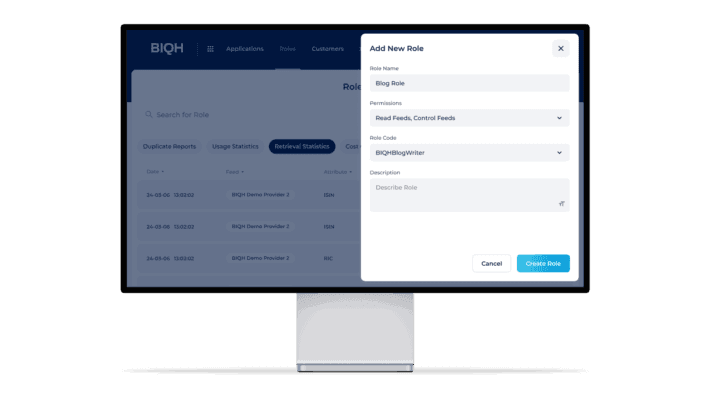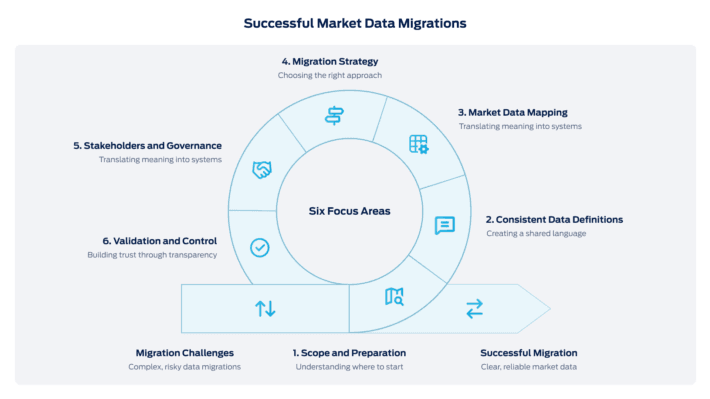Why data format compatibility is the most overlooked risk in market data management

Introduction: beyond coverage, quality and attributes
When selecting a market data vendor, most organisations rely on a familiar checklist: is the coverage sufficiently broad? Are the required attributes available? Is the data accurate and up to date?
While these factors are undoubtedly important, one critical risk is often overlooked until it becomes a costly problem. That risk is data format compatibility, a seemingly small detail that can derail entire implementations if ignored. In other words, can your downstream systems process the data exactly as it is delivered?
What may appear to be a technical detail can lead to failed integrations, frustrated teams and escalating costs.
The hidden pitfall: when “good data” still breaks your system
You have selected a data vendor. The instruments and attributes align with your requirements. Test queries confirm the data is accurate. Everything appears to be in order.
Then comes the integration phase and suddenly, nothing works.
The culprit? Seemingly minor mismatches:
- Your system expects the value ‘1’ instead of the value ‘true’
- The system can only handle up to five decimals, but the new data vendor provides up to six decimals
- The required date format is YYYYMMDD, but the data arrives as YYYY-MM-DD
These issues may sound trivial, but their operational impact is anything but. Manual workarounds are time-consuming, while bespoke IT fixes can be costly. No financial institution has time to redesign interfaces or data models, especially with the constant pressure of regulatory compliance. In our experience, even major financial institutions fall into this trap.
The core question to ask:
What is often missing from data vendor selection processes is one simple but vital question:
Can our systems consume the data exactly as delivered, without transformation?
This is not a question for procurement teams or vendor managers. It is a question for the people who use the data daily: developers, analysts and data engineers. Yet they are frequently excluded from the decision-making process.
As a result, organisations might end up purchasing “the right data” in the wrong format.
The BIQH approach: plug-and-play market data through unified formatting
At BIQH, we eliminate this risk by ensuring data formatting is not an afterthought. It is embedded into the core of our delivery approach.
Through our vendor-independent GraphQL API, all formatting logic is standardised to match your technical environment. This means:
- Boolean values follow your system’s requirements (1/0, true/false or even custom mappings)
- Decimals and dates conform to your exact precision and structure
- No manual intervention or post-processing is required
We call this data unification. It is the key to making market data truly plug-and-play.
Examples from the field
Here are a few real-world examples where BIQH prevented data format mismatches from turning into business risks:
- A leading European bank required values in pounds, but received them in kilograms from their new market data vendor. Like many legacy systems, their reports depended on consistent units. We automatically applied the correct transformation to ensure seamless integration.
- Another institution experienced application crashes due to excessive decimal precision. We restricted the output to five digits, eliminating the need for any changes on their side.
Across all our clients, we apply formatting unification consistently, without altering the underlying meaning of the data. This ensures seamless delivery to every downstream system. How do we do it? Read more in our previous blog post.
Conclusion: compatibility is not optional, it is foundational
Selecting a data vendor based on coverage and accuracy is only part of the equation. Without format compatibility, even the highest quality data becomes unusable.
By embedding formatting rules into the delivery process, BIQH ensures your systems receive data that works, no matter what the delivery format of the data vendor looks like.
Avoid discovering format issues during integration. With BIQH, your market data is ready for immediate use.


